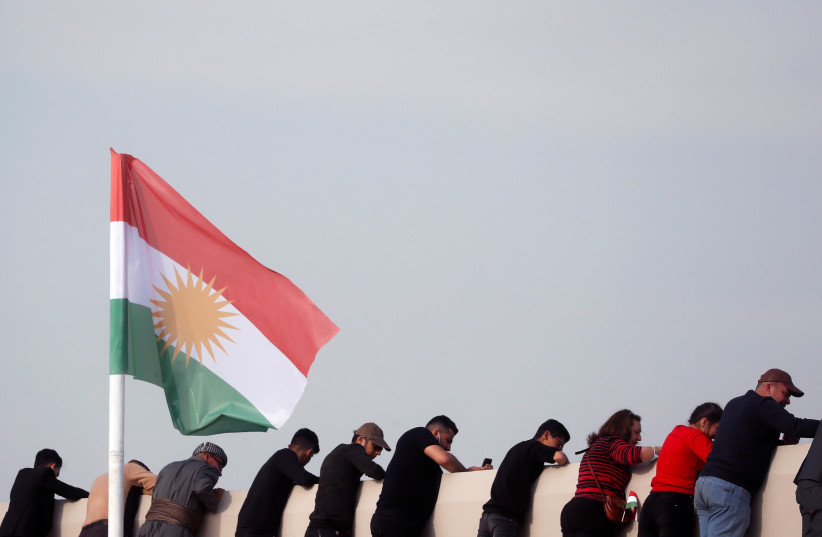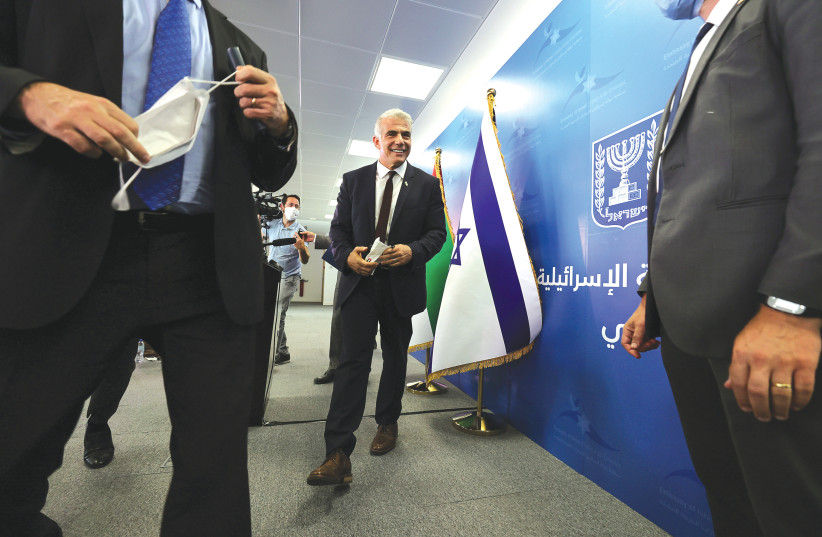Easily overlooked amid all the coverage of the United Nations General Assembly opening in New York and other international news stories was a noteworthy gathering that took place on Friday. Some 300 Iraqi leaders, including prominent Sunni and Shi’ite figures, met at a conference in Erbil, the capital of Iraqi Kurdistan, and called for the normalization of ties with Israel as part of the Abraham Accords.
The unusual convention was organized by the New York-based think tank Center for Peace Communications.
Although Israel has had long, cordial relations with the Kurdish autonomy, the size of the gathering and the type of people who attended made the conference stick out. That both Sunni and Shi’ite leaders attended is noteworthy in its own right, but even more so given the focus on creating diplomatic ties with Israel. The attendees reportedly came from six governorates, including Baghdad and Mosul, and ranged from youth activists and intellectuals to tribal leaders.
The closing statement by Dr. Sahar al-Tai read, “We demand our integration into the Abraham Accords. Just as these agreements provide for diplomatic relations between the signatories and Israel, we also want normal relations with Israel.
“No force, local or foreign, has the right to prevent this call,” added Tai, who is head of research at the Iraqi federal government’s Culture Ministry.

In keeping with the spirit that last year motivated the Abraham Accords between Israel and the United Arab Emirates, Bahrain, Morocco and Sudan, the focus is on normalizing ties between Israel and the Muslim world, not at the expense of the Palestinians but without placing Palestinian demands at the forefront and thus enabling them to thwart any normalization initiative.
The meeting was greeted enthusiastically in Israel. In a tweet, Prime Minister Naftali Bennett said, “Israel extends its hand back in peace,” noting, “This is a call that comes from below and not from above, from the people and not from the government, and the recognition of the historical injustice done to the Jews of Iraq is especially important.”
Foreign Minister Yair Lapid said, “Since the day this government took office, our goal has been to expand the Abraham Accords. The event in Iraq inspires hope for places we have not thought of before.

“We and Iraq share a common history and roots in the Jewish community, and whenever someone reaches out to us, we will do everything to reach back,” he added.
The Iraqi government condemned the gathering, issuing an official statement on behalf of Prime Minister Mustafa al-Kadhimi saying the rally “did not represent the opinion of the population and the people of Iraq, but only the position of those who participated in it.”
According to the Iraqi Shafaq news agency, Wisam al-Hardan, the leader of Sons of Iraq Awakening (Sahwa) movement, who spoke in favor of normalization, later backtracked following the Iraqi outrage.
On Friday, Hardan wrote an opinion piece in The Wall Street Journal that appeared under the headline “Iraq Should Join the Abraham Accords.”
Noting that many at the gathering had fought al-Qaeda and ISIS, he said, “We have a choice: tyranny and chaos, or legality, decency, peace and progress. The answer is clear. Just as we demand that Iraq achieve federalism domestically, we demand that Iraq join the Abraham Accords internationally.”
He reportedly gave a similar message at the conference in favor of full ties with Israel, noting the difference between the countries that had joined the peace initiative and the turmoil that ruled the rest of the region.
At the meeting in Erbil, Tai reportedly pointed out, “Israel today, as you know, is a strong country and an inseparable part of the world and the United Nations. Iraq cannot neglect this fact and live in isolation from the world.”
The efforts to further normalization between the Arab states and Israel should receive the backing of all those who truly support peace. Those who have bravely called for ties with Israel deserve support from the Western world. This is the way forward. A coalition against jihadist terrorism and the threats of a nearly nuclear Iran is essential. It should not depend on Palestinian whims and demands but on the needs of all countries in the world that value peace, stability and freedom.
